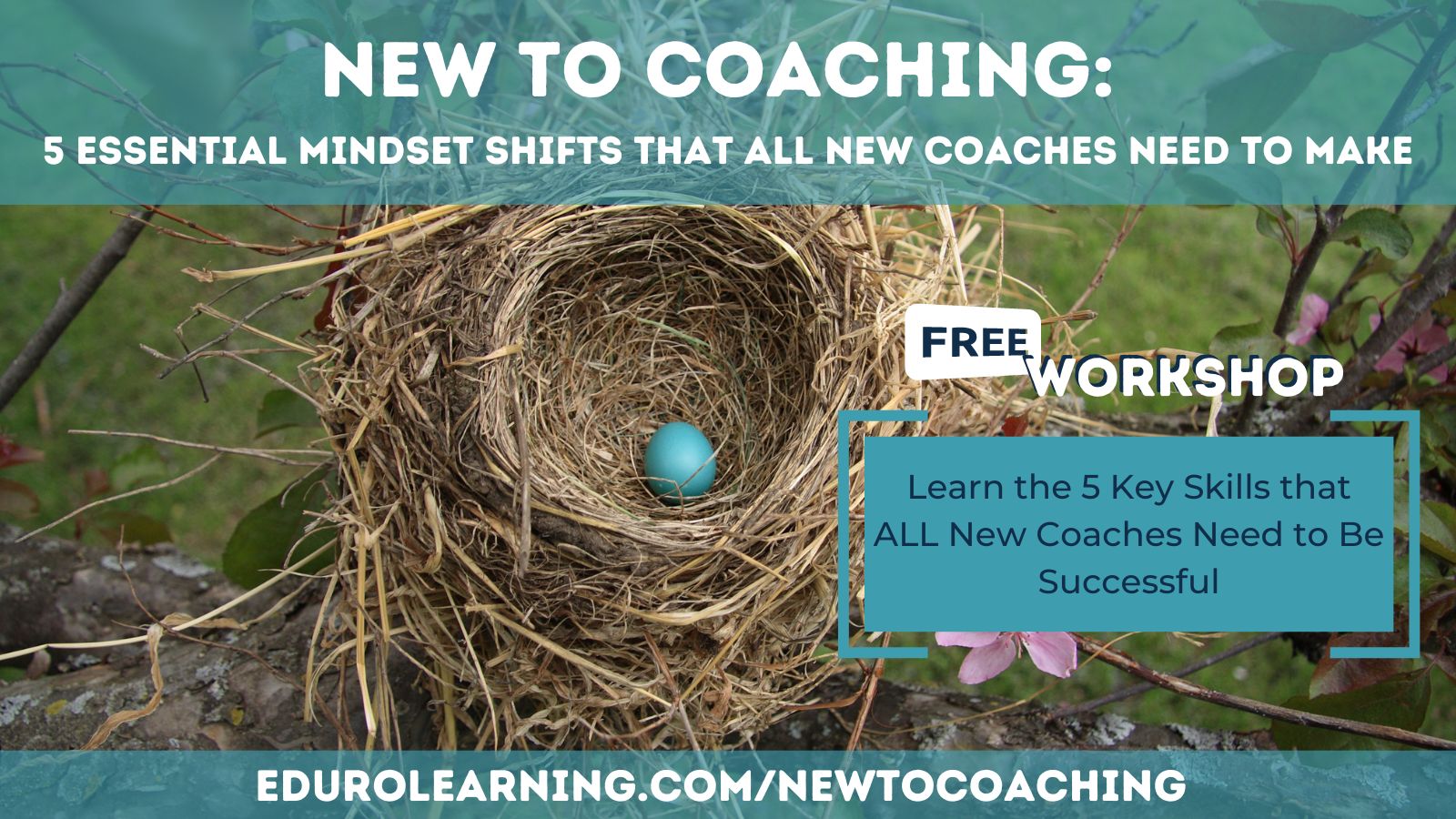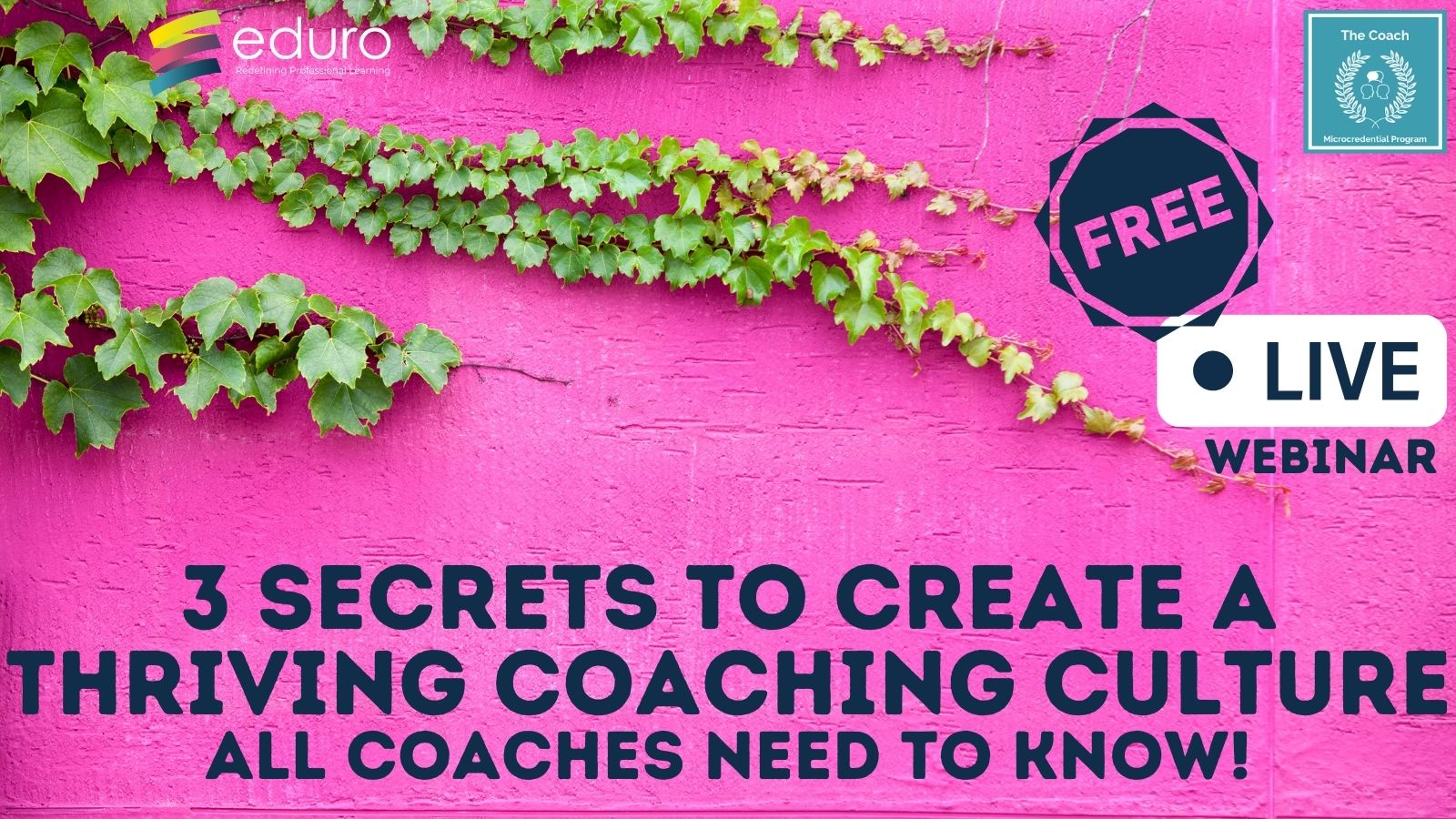As instructional coaches, our role is to work closely with all stakeholders within our school communities, and that means we need to be the kind of person that people like working with! In our #coachbetter YouTube series, we’ve been asking teachers, counselors, librarians and school leaders what they value most about the instructional coaches they work with – and the responses are consistent!
There are 6 key qualities that all successful instructional coaches have in common and they are all highly valued by your teaching colleagues. Here they are:
1. Approachability
Asking to work with an instructional coach requires some vulnerability. It means that your colleague needs help, advice or support with something, and they’ve chosen to come to you. As a coach, it’s critical that we are welcoming, easy to talk to, and excited about the projects and ideas they bring to us. Often times that means we’re doing the same tasks over and over again, which may not be the most interesting thing in the world, but we can’t let that show! If we want our colleagues to work with us, to build relationships with us, and to take risks in their classrooms, we need to be approachable and willing to support them in whatever their needs are. As Adam Clark (School Counselor at Yokohama International School, Japan) said in his interview:
“There are other places I can get my questions answered. If the coach doesn’t appear interested in helping me, I’ll just go elsewhere.”
2. Flexibility
One of the best parts about being an instructional coach is the opportunity to work with so many different members of the school community, and often to have a flexible schedule. The downside is that many times we are approached by colleagues who need support for something that’s not strictly in our job descriptions, or they need help resolving an issue in a time frame that’s not ideal. Of course, we need to be careful with our time management, but we also need to be able to be flexible to support the teachers and leaders who need us – often times right at that moment. As Beth Queeny Dressler (Deputy Head of Elementary and PYP Coordinator at NIST International School Bangkok, Thailand) said in her interview,
“Coaches have to be comfortable to live in a gray zone to sometimes do things that are “not your job” because at the end of the day that task might be a huge win with a teacher.”
It’s not always easy to be flexible, especially when we have a busy day ahead of us, but it’s important to remember that sometimes those very small, but urgent, tasks are the ones that open up the doors to a long-lasting professional relationship!
3. Reliability
As coaches, we are often supporting our colleagues in areas where they don’t feel supremely confident. No matter which curricular area we work in, when colleagues come to us, it’s because they know they need our support. Ensuring that we are not only available when we say we will be, but also that we are professional and engaged during the times that we’re working with our colleagues is key to ensuring that they will come back again for support. As Tara Ethridge, Elementary Librarian at International School Prague, Czech Republic, shared in our #coachbetter interview, she always asks for support from her tech coach when she Skypes an author. Even though she has done it many times before, she always appreciates the support of her coach, just in case anything doesn’t go as planned. Knowing that she has that support there is what makes it possible for her to take those risks in using even established tools like Skype in the library.
What’s YOUR level of coaching mastery?
All coaches go through various stages of coaching mastery. Once you identify where you’re at, you can begin to build the skills needed to move to the next stage.
This quiz is based on real-life case studies compiled from years of working with coaches inside The Coach Certificate & Mentorship Program!
When you receive your results, you’ll also get your matching case study from the STRIVE Case Studies to see where you fit in the stages of coaching mastery.
Ready to tackle your challenges and move on to the next level in YOUR coaching practice?

The STRIVE Model of Coaching Mastery quiz will help you identify your level of coaching mastery by matching you with case studies compiled from years of working with coaches inside The Coach Certificate & Mentorship Program so you can easily see where you fit!
When you complete the quiz, you’ll get:
- Your matching case study,
- Specific strengths & challenges aligned to your result;
- Suggested next steps for each stage;
Plus the Case Study Document includes:
- Case studies leveled by coaching mastery;
- A framework to identify essential stages of professional growth & key areas to focus on in your professional learning;
- Alignment with the THRIVE Model for a Successful Coaching Culture;
- Space for you to reflect & prioritize so you can take action immediately!
You’ll go straight to the Quiz, and get the Case Study Document via email.
4. Passionate Self-Starter
As experienced coaches, we know that we are often the cheerleader for our instructional area in our schools. Sometimes we’re the only voice of enthusiasm for our subject area, and that can be tough. It’s critical that coaches keep that enthusiasm and energy going, even when it seems like an uphill battle. That means that often coaches are required to define their own job or to help school leaders develop vision or strategic plans for moving forward. We need to be advocates not only for our curricular area but also for ourselves as coaches in our individual schools. As Rebekah Madrid, Middle School Principal at Yokohama International School, Japan shared in our interview,
“Coaches need to think of themselves as leaders. It’s important to develop not only coaching strategies but also leadership skills. Being a middle leader is awkward, the more strategies you have, the more confident you’ll be.”
5. Relatable and Empathetic
Along with being approachable, it’s important for coaches to be relatable. We can’t be seen as such experts in our fields that we are intimidating for teachers or colleagues to come work with us. If we are so far removed from the skills and comfort level of our peers, they will be unlikely to seek out our support. As Nici Foote, Grade 3 Classroom Teacher at Western Academy of Beijing in China, shared in our interview:
“Teachers need the confidence to start to wonder themselves about what they could be doing. It’s critical to build trust, a safe space, tuning into what their fears are, notice little things that might drive them forward and what they’re passionate about.” Nici also mentioned the challenges of “juggling so many responsibilities as a teacher (so many individual students, parents, admin, emails, etc). As a coach, you need to make the visible effort to come to the teacher. Canceled meetings are difficult.”
6. Knowledge and Connections
It may be the most obvious, but it’s worth repeating. Often times coaches are the only individual in a school setting with their specific area of expertise. This means one of our most valuable qualities in a school is our experience, our knowledge and our connections to other schools. Coaches have the time and passion to prioritize innovative ideas in teaching and learning, and we have the skills to be connected to others. Bringing that back to our schools is highly valued by school leader, teachers, counselors and librarians alike! As Tico Oms, Middle School Dean of Students at International School Bangkok, Thailand, shared in our interview:
“Coaches are repositories of research and development, they know what is best practice and need to spend a good portion their time discovering what other schools are doing.”
Bringing It All Together
As we speak with more and more educators around the world, these qualities of successful instructional coaches are becoming clearer and more consistent. Do you agree with these top 6 qualities? What else would you add to the list?
Watch the Video
Ready to #coachbetter?
If you’re ready to dig deeper into being more intentional in your coaching practice – or if you’re new to instructional coaching and you’re curious about getting started, join us for one of our courses for coaches!
To learn more about these options, I have two FREE workshops to share with you today.
New Coaches:
If you’re just getting started as a coach, and you want to be successful in your early years, watch our New to Coaching Workshop, which highlights the key mindset and skill set shifts you’ll need when moving from the classroom to a coaching role. The workshop will also tell you all about our course for new coaches, Getting Started as a Coach.
This short course is specifically designed for classroom teachers that are moving into a coaching role so you’re prepared for the transition. It’s focused on exactly the skillset & mindset shifts you need to so you can be successful in your first years as an instructional coach.

Experienced Coaches:
If you’re already a coach & you want to think about being more intentional & strategic in your practice, watch our workshop on the Thrive Model for Coaching Success which will help you evaluate your program and your practice to see where you may have room to grow. You’ll walk away with a clear picture of exactly what you need to focus on to build a thriving coaching culture – and help you decide if our year-long mentorship and certification program, The Coach, is right for you, right now. This program is designed for current coaches who are focused on building a coaching culture through intentional and strategic coaching work at all levels – with teachers and school leaders.

Wherever you are in your coaching journey, we can support you!
For All Coaches
Connect with us!
- Subscribe to the podcast iTunes | Spotify | Stitcher
- Follow us on social media: Twitter | Instagram | LinkedIn
- Join our #coachbetter Facebook group
- Explore our courses for coaches

Recent Comments